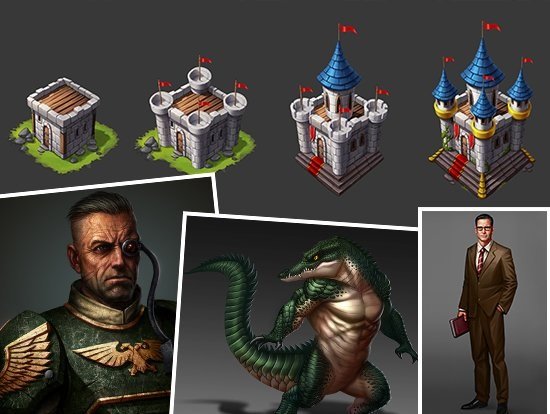Game development is a complex process that requires a team of talented professionals to bring a game to life. One of the most important aspects of game development is the creation of game art. Game art includes all the visual elements of a game, such as character design, environments, props, and animations. High-quality game art is essential to create an engaging and immersive gaming experience that keeps players coming back for more.
Cost Savings
One of the most significant benefits of outsourcing game art is the cost savings. Game development is an expensive process, and hiring an in-house team of artists can be a significant financial burden for game development companies, especially for small or independent studios.
Outsourcing game art allows these companies to access a global pool of talented artists who can work remotely at a lower cost. This not only reduces the upfront investment but also eliminates the need to provide employee benefits, office space, equipment, and other overheads that come with having an in-house team. Additionally, outsourcing game art allows companies to scale their resources up or down as needed, making it a flexible and cost-effective solution. Check out this site for outsourcing game art, as it will help game development companies save money and allocate their resources more efficiently, allowing them to focus on other important aspects of game development.
Access to Specialized Talent
Another benefit of outsourcing game art is access to specialized talent. Game development requires a diverse set of skills, and finding artists with the specific skills needed for a particular project can be challenging. Outsourcing game art allows game development companies to access a global pool of talented artists with diverse expertise and experience.
This means that the game development team can select the best artists for their project regardless of their location. Outsourcing also allows for the flexibility to scale up or down the team as needed, which can be cost-effective. Additionally, working with specialized talent can lead to higher quality artwork and a more polished final product. Overall, outsourcing game art can be a smart business decision that leads to better results and a more successful game.
Increased Efficiency
Outsourcing game art can also increase the efficiency of game development companies. Game development is a time-consuming process, and outsourcing game art can free up valuable time for game developers to focus on other aspects of the game development process, such as programming, game design, and marketing.
Outsourcing game art can also improve the quality of the game, as specialized game art companies have the expertise to create high-quality graphics and animations. This can enhance the overall visual appeal of the game and make it more engaging for players. Additionally, outsourcing game art can help game development companies save costs, as they do not need to invest in expensive software and hardware, or hire a full-time in-house art team. Overall, outsourcing game art can be a smart business decision for game development companies looking to streamline their processes and improve the quality of their games.
Conclusion
Outsourcing game art can provide numerous benefits to game development companies, including cost savings, access to specialized talent, and increased efficiency. By outsourcing game art, game development companies can focus on other aspects of the game development process while ensuring that their game art is of the highest quality and delivered on time.
Outsourcing game art also allows game development companies to tap into a global talent pool, giving them access to artists with diverse perspectives and skill sets. This can result in more innovative and unique game art that sets their games apart from competitors. Additionally, outsourcing game art can help game development companies meet tight deadlines and avoid the costs associated with hiring and training in-house artists. With all these benefits, outsourcing game art has become a standard practice in the game development industry.

